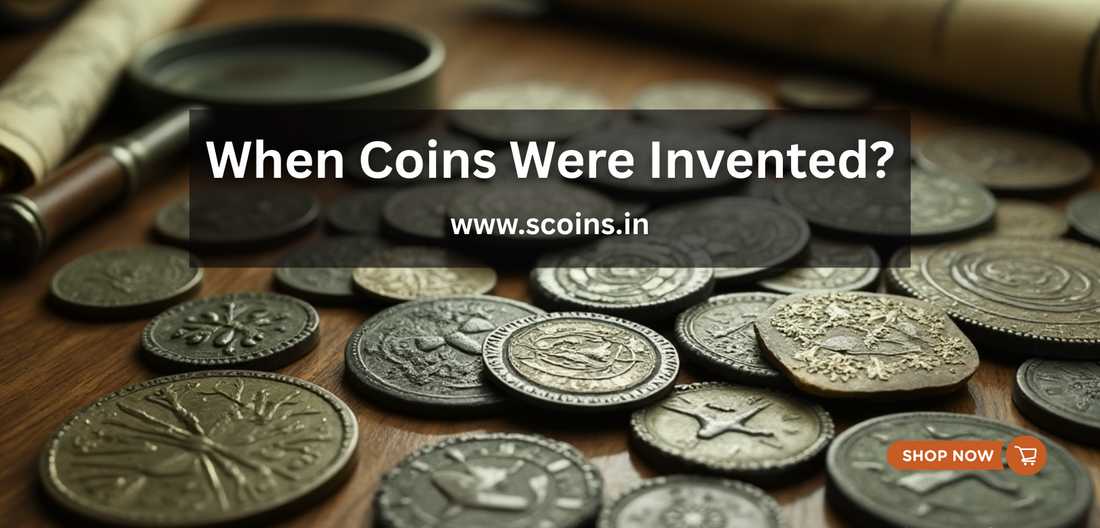
When Coins Were Invented?
Money is something we all use daily, but have you ever wondered when coins were invented or how the idea of coinage even began? Let’s take a deep dive into the history of coins, exploring the origin of currency and how ancient civilizations revolutionized trade with the invention of coins.
The Birth of Coins – When Had Been Coins First Used?
The first coins in the world are believed to were minted around 600 BCE within the historic kingdom of Lydia, located in what's now modern-day Turkey. These early coins were crafted from electrum, a naturally occurring alloy of gold and silver.
The Lydian king, Alyattes, is often credited with issuing the arena's first standardized foreign money. His son, King Croesus, later introduced coins made from pure gold and silver, setting the stage for global coinage.
💡 Did you understand? The call “Croesus” became synonymous with wealth in ancient instances – ever heard the phrase “rich as Croesus”?
Why were Coins Invented?
Before the invention of coins, humans trusted barter systems, where goods and services have been exchanged directly. But this device had its flaws – it was hard to measure value, and transactions weren’t always fair or practical.
Coins solved this problem by means of providing:
- A standardized unit of value
- Easy Portability
- Durability
- official approval from rulers or governments (giving them legitimacy)
Ancient Civilizations and the Spread of Coins
After Lydia, other civilizations fast adopted the idea of coinage. right here’s the way it spread:
-
Greece: Greek metropolis-states started out minting their personal cash, often featuring gods, animals, or famous leaders.
-
Persia: The Achaemenid Empire issued coins for alternate throughout their tremendous empire.
-
India: historic Indian coinage began around the sixth century BCE with punch-marked coins.
- China: Early Chinese language coins had been forged in bronze and had precise shapes like knives and spades earlier than transitioning to round cash with square holes.
The Function of Coins in Trade and Society
The history of coins is deeply tied to the rise of civilizations. Coins allowed for efficient trade, tax collection, and even propaganda. Kings and emperors frequently minted cash bearing their likeness to showcase their strength and legitimacy.
Coins had been also used in religious offerings, ceremonies, and as a way of saving wealth – similar to these days.
Collecting historical Coins – A Treasure Trove of History
Today, ancient coins are a hot favorite among collectors and records lovers. Numismatics, the examine and series of cash, facilitates us understand historic events, economies, and cultural shifts.
If you’re fascinated about the invention of coins or need to preserve a bit of history for your fingers, collecting old coins is a extremely good interest to begin. Websites like Scoins.in provide a wide variety of authentic old coins from around the world, inclusive of rare and historical types.
Final Thoughts
The origin of coins dates back over 2,600 years, but their role in society remains just as vital today. From a tool of ancient trade to a symbol of economic power, coins continue to shape our world. Understanding when coins were invented gives us a glimpse into how humanity evolved from barter to banking.
So next time you hold a coin, think of it not just as spare change—but as a piece of history.
Interested in ancient coins or numismatics? Browse our collection of old coins here!
